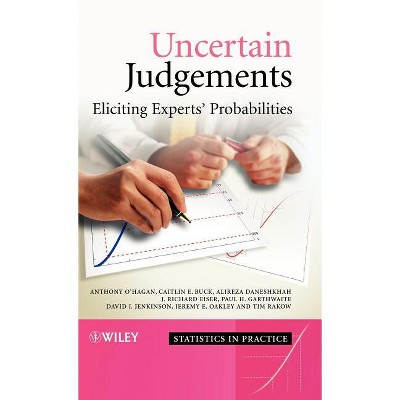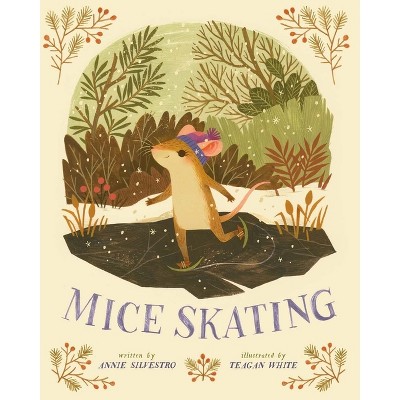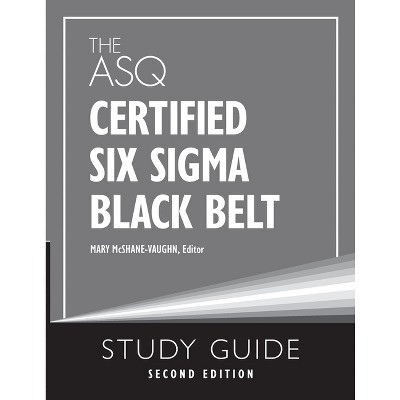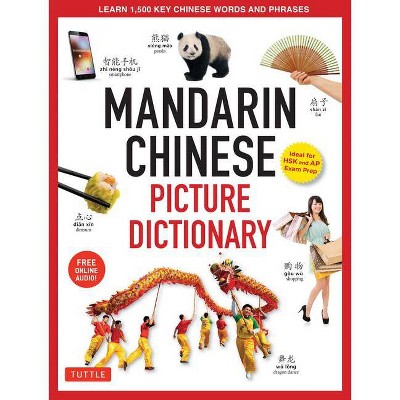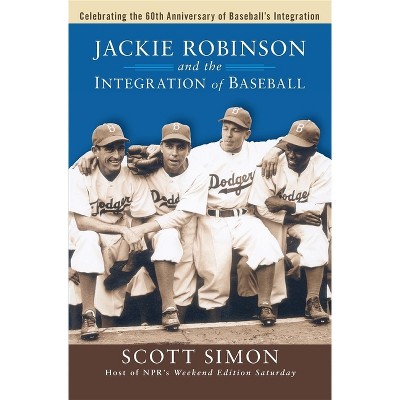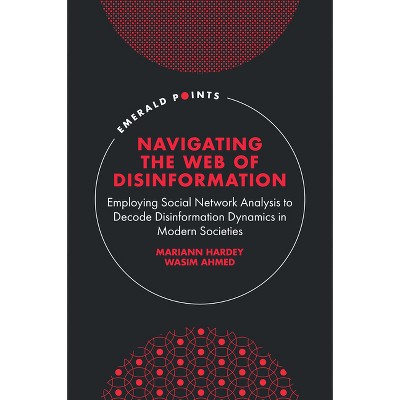Sponsored

Practitioner, Professor, Researcher, Reformer - (Emerald Points) by Jackie Carter & Linda Baines (Hardcover)
In Stock
Sponsored
About this item
Highlights
- Although women are performing well academically, are they reaching the heights that their male counterparts are?
- About the Author: Jackie Carter is a Professor of Statistical Literacy and the Academic Lead for Disability Inclusion at The University of Manchester, UK.
- 160 Pages
- Education, Administration
- Series Name: Emerald Points
Description
About the Book
Although women are performing well academically, are they reaching the heights that their male counterparts are? If not, why not? Practitioner, Professor, Researcher, Reformer: Women's Atypical Stories shows why gender inequalities persist in the academy and beyond.
Book Synopsis
Although women are performing well academically, are they reaching the heights that their male counterparts are? If not, why not? Practitioner, Professor, Researcher, Reformer: Women's Atypical Stories shows why gender inequalities persist in the academy and beyond.
Jackie Carter and Linda Baines shed light on why women might choose to leave academia, while also asking questions about how to bring lived experience and knowledge transfer into academia from those who chose a different career path initially. Educational structures such as recruitment, promotion and reward have barely changed in the last 100 years. Through a thematic analysis of personal narratives from thirty women the authors examine the structural issues that persist (e.g. care giving as a gendered domain, routes into higher education, elitism within the academy). They argue that to create a workforce that values activism and practitioner experience higher education needs a radical rethink. And to achieve better gender equality, a reform of recruitment and reward in higher education may be long overdue.
Practitioner, Professor, Researcher, Reformer: Women's Atypical Stories is essential reading for researchers and practitioners who want to discover what it means for women to be in and of the academy in the 21st century.
Review Quotes
As a Professor of Education and a dyslexic, dyspraxic Eleven Plus failure, I was very encouraged by this book which lays out so clearly the many reasons why diversity equals strength in academia and wider society. The participant narratives highlighted myriad often gendered barriers, multiple creative ways to overcome them and compelling reasons why doing so benefits everyone.
--Professor Nicola Martin, London South Bank UniversityThis book celebrates the valuable unique contributions from us atypicals that are sorely needed in Higher Education. These stories of tenacity, resilience and innovation highlight that academia is for us and we are needed. These stories demonstrate how feeling like you don't fit can be difficult but that mis-shapes can disrupt taken for granted knowledge - which is the point of academia is it not? Throughout the book issues of class and belonging permeate. These narratives indicate that working class women are more likely to find their way into academia through happenstance and fortunate career accidents rather than by design. This book on atypical careers helps lifting the lid on class to provoke discussion about the beauty and value of atypical career journeys whilst also leaving room to consider those who would like/or benefit from easier paths into academia rather than arduous climbs.
--Dr Kelly Pickard-Smith, University of ExeterThis book is a celebration of boldness, resilience, and entrepreneurial drive in forging your own professional path. It's especially relevant for anyone who's navigated changes across careers or sectors, including academia, and offers both inspiration and practical advice. The authors, through their own stories and those of others, illustrate that success in academia doesn't follow one path. Instead, they highlight the courage and creativity found in unconventional journeys and the impact these diverse voices have on higher education. Each chapter is engaging and actionable, making this book an invaluable resource for anyone seeking purpose or motivation to pursue their unique direction. I highly recommend it to those who want to understand and honour the many ways to succeed in academia.
--Sheree Palmer, Education ConsultantPractitioner, Professor, Researcher, Reformer: Women's Atypical Stories, should be on the desk of every vice chancellor on the planet! I found the book to be extremely accessible, compelling, and honest. The story telling of the 30 women interviewed for the book, reveals such an insightful and intimate tapestry of perspectives and views, who have followed an atypical academic journey. I also loved the sub themes that emerged in chapters 5 and 6, revealing the barriers to change and lack of diversity, particularly in the higher education sector. There are also, lots of useful resources and further reading links included at the end of each chapter. I highly recommend this book, not just for women, but for everyone in academia and industry.
--Professor Rhys C Jones, Manchester Metropolitan UniversityA truly insightful and long overdue book. As a sector that needs to authentically diversify, this should serve as a guide not only for those academics from non-traditional backgrounds, but for senior university leaders who need to truly understand the challenges and unique perspectives and skills that these colleagues can bring. Furthermore, the book acts as a framework for how leaders can create a framework for atypical careers in which all colleagues can truly flourish.
--Professor Damien Page, Buckinghamshire New UniversityAn immensely valuable book for university leaders committed to removing systemic barriers and opening up career pathways to the strengths, creativity and determination of women that take atypical routes. For those navigating these routes, this book will provide inspiration and practical advice.
This important book responds to the urgent need for systemic change to break down career barriers for women in higher education, providing hope, real experiences and practical advice.
--Professor Julie Hall, Vice Chancellor, London Metropolitan UniversityAs higher education refocuses its purpose and profile in light of multiple challenges, Practitioner, Professor, Researcher, Reformer: Women's Atypical Stories provides a timely insight into non-traditional pathways in academic and related sectors. These professionals - often labelled as exceptions - are increasingly recognized for being pivotal as movers and shakers, agents prepared to positively disrupt institutional hierarchies that are intimidated by the opportunity to embrace risk.
This text seeks to explore the consequences of job titles and descriptions and does so from the lived experience(s) that while diversity, equity and inclusion initiatives are making a difference, they often do so at the margins. Employing semi-structured interviews with a broad selection of 'torchbearers', Carter and Baines explore the barriers, strategies and enablers that atypical women often share in order to make a difference. As a result, we better understand what draws such people into, and away from, standardized academic roles.
The developing narrative utilizes sub-themes and challenges the reader to question the "tick box" nature of how academia currently operates within institutional silos and traditional metrics, placing at its centre the requirement for developing supportive and inclusive environments and cultures. The authors expose further research requirements regarding the potential for atypical careers to enrich higher education through diversity and partnership.
Their evidence repeatedly demonstrates how skills related to communication, adaptability, real-world experience, practical application, collaboration, inclusivity, and business acumen are often under-valued. What is clear is that 'impact' - especially knowledge transfer and exchange - requires greater exploration and explanation if academia is to attract, retain and nurture talent to deliver on ambition.
--Professor Lisa Harrison, Senior Leader and consultant in Higher EducationGorgeous and galvanizing, this book shatters the myth of the 'proper academic' and celebrates the women who refuse to fit its narrow mold. These are the torchbearers of the academy--positive disruptors whose stories reveal both the exhaustion of constantly having to justify themselves and the exhilaration of carving their own paths.
By turns uplifting and sobering, tender and fierce, it honours those who stay, those who leave, and those who redefine what an academic life can be. For anyone who has ever felt out of place in the university world, this book is both a mirror and a manifesto. I cannot recommend it highly enough.
--Professor Christina Hughes, Women-Space Leadership LimitedI wish I'd had this book when I began my own atypical academic-adjacent career. Underpinned by careful research, this authoritative work demonstrates the creativity and resilience of women working atypically in and with academia. The expert authors provide a fascinating insight into the diversity, challenges, and rewards of women's scholarly careers. This book is essential reading for any woman considering or undertaking a career in or close to academia, and for anyone working with scholarly women.
--Helen Kara, Independent ResearcherIt is not often you get the opportunity read a book that so thoughtfully represents and empower the voices, stories and experiences of women in academia. Yet, the authors of this book beautifully articulate both the intersecting joys and pains that come with navigating academia as a woman. The authors narrate a compelling case for the 'atypical' academic career, which, showcases the huge scale of work that is needed to ensure academic structures are embracing 'atypical' excellence to be truly fit for an inclusive and sustainable academic future.
--Dr Arun Verma, University of LondonJackie Carter and Linda Baines have delivered a profoundly insightful and timely work with their book Practitioner, Professor, Researcher, Reformer: Women's Atypical Stories.
This book is an essential read for anyone invested in the future of higher education and, more broadly, the professional landscape. By meticulously weaving together the authentic narratives of thirty women, it not only illuminates the diverse, often non-linear, career paths that lead to and through academia but also bravely confronts the systemic barriers that persist. The book's strength lies in its ability to transform individual experiences into universal lessons. It gives a compelling argument for why atypical trajectories are not just valid but crucial for enriching our institutions, fostering true diversity, and driving innovation. The call for torchbearers and positive disruptors resonates deeply, providing both inspiration for those navigating unconventional routes and a clear directive for leaders committed to genuine inclusivity.
This book offers a vital contribution to the dialogue on gender equality and professional development. It will undoubtedly empower countless women to embrace their unique journeys and challenge existing norms. A truly necessary and compelling addition to the literature.
--Professor Olive MugendaThis book is a gift. I can't wait to share it with the brilliant women in my world who are questioning whether there's a place for them in academia, because they feel late, lost, or "less than." Without glossing over the real challenges of forging an atypical path, these 30 stories offer hard-won insights, real strategies, and the kind of solidarity that can reignite a dream. Masterfully edited and deeply human, this collection is both a balm and a beacon. Thank you, Torchbearers.
--Agnes Vajda, Global Education & Leadership Coach, ECPC. Former Regional Director, Europe - Institute of International Education (IIE)This book provides a fascinating insight into the world of professional working women and fully explores their journeys and experiences in or with higher education. The women have navigated non-traditional career pathways and atypical career trajectories in academic and related sectors, and have provided a lens onto the challenges, strategies and contributions of their evolving careers and lives.
Interviews with thirty women offer new insights into our understanding of the relationship between women's lives and their careers. The approach to data analysis gives voice to and authenticates the women's experiences and challenges. The authors have very cleverly foregrounded the women's voices and stories and have allowed the data to do the talking, making the accounts in this book honest, heartfelt and impactful. The accounts describe the often not straight-forward routes into careers in higher education, and this offers a substantial contribution to the body of research that focusses on gender equality and women in the workplace.
The book is also a useful resource for all women, whether they are seeking inspiration, information and opportunities, or not. The work is compelling and makes a significant addition for researchers and readers who want to understand the lived experiences of becoming a higher education professional. Each chapter provides powerful accounts that achieve many aims, including highlighting the wide range of skills, knowledge and expertise that the women bring to their roles in higher education.
The authors decided not to include any theoretical underpinnings as part of the book, and this allows the women's voices to be heard loudly and clearly. The critical analysis of the women's experiences reflects the journeys of colleagues from diverse and non-traditional backgrounds, including under-represented groups like the working class. The book therefore has the potential to improve and build upon more inclusive approaches to supporting the recruitment and advancement of women from a diversity of backgrounds.
The book is a testimony of strength, resilience and determination. Much of what the women recount from their own experiences resonates with me and my own experience. I am a working-class academic who returned to education as a mature student, having left school early without any qualifications. Forging a career in higher education is tough at the best of times but if you come from disadvantage, under-representation, and if you struggle with imposterism and feelings of belonging, this makes the journey much more arduous and precarious. What these testimonies provide are inspirational and encouraging statements that act as visible positive role modelling, or as the authors prefer to say, 'torchbearing', lighting the way for other women to pursue careers, not just in the sector of higher education, but also in other areas.
--Iona Burnell Reilly, University of East LondonThis insightful and important book explores women's non-traditional career paths in and around academia. Through careful analysis of thirty women's experiences, Jackie Carter and Linda Baines provide both a portrait of the challenges faced by those pursuing unconventional routes and a valuable roadmap for institutions seeking to become more inclusive.
The book documents the varied trajectories of women in academia, organised into four meaningful categories: those transitioning into academia from other professions (Getting In), those creating innovative hybrid roles within institutions (Getting On), those applying their academic expertise beyond university settings (Getting Out), and those whose careers defy easy classification (Getting Along).
Each story is presented with sensitivity to the institutional barriers these women encountered, from rigid promotion criteria to disciplinary silos, while also highlighting their creative strategies for success.
Particularly powerful is the book's exploration of how these women serve as torchbearers - illuminating alternative pathways for others - and positive disruptors challenging entrenched academic norms. Through their lived experiences, we see how they persist in creating new roles and narratives despite systems that often marginalise non-traditional contributions.
The final chapters build effectively on these personal narratives to address systemic issues. Chapter 5 provides concrete examples of how these women facilitate knowledge exchange between academia and other sectors. Their boundary-spanning work, whether translating research for public audiences, fostering industry collaborations, or developing community partnerships, creates value that often goes unrecognised in traditional academic reward systems.
Chapter 6 makes a persuasive case for why these atypical careers matter institutionally and socially. By connecting these career paths to broader goals like the Sustainable Development Goals, the authors demonstrate how universities stand to benefit from embracing diverse forms of expertise. The discussion of how atypical careers can address issues of equity, relevance, and impact is especially timely as institutions grapple with questions about their mission.
The authors themselves exemplify the torchbearers and disruptors they describe. Jackie's journey from practitioner to professor and Linda's work as an independent scholar model the very career adaptability the book champions. Their dual perspective as researchers and practitioners lends authenticity to both their critique of current systems and their vision for more inclusive alternatives.
A significant contribution that combines research with practical insights, this book advances our understanding of women's non-traditional career paths in academia while suggesting ways institutions might evolve to better support diverse forms of professional achievement.
--Associate Professor Jonathan Boymal, RMIT University, AustraliaWith their book Practitioner, Professor, Researcher, Reformer: Women's Atypical Stories Jackie Carter and Linda Baines have made their readers a gift as atypical and memorable as the stories of the lives and fights of these thirty remarkable women we are privileged to be told, and as the manner, balancing subtlety and boldness, in which they are written. These stories are individual, peculiar 'data points'; yet they share features and, taken together, they paint a striking picture of our society and era. The book masterfully revisits a genre and strikes a chord; by putting names on and delving with precision and respect into personal struggles, it creates an inalienable bond between the authors, their subjects, and their readers; one that we can carry to find our way in turbulent times. Thank you.
--Emmanuel Letouzé, PhD, Director and co-Founder, Data-Pop Alliance; Adjunct Faculty, Columbia University and Sciences Po ParisWow, what a book! As an atypical academic myself, this book truly hits home. The authors tackle topics that are rarely discussed, and I'm grateful to them for raising awareness while highlighting both the strengths that women with atypical academic careers bring to the field and the challenges they face. This book will resonate with anyone who feels they don't quite fit into academia, encouraging them to think differently and empowering them to reshape what it means to be an academic.
--Professor Vanessa Higgins, University of Manchester and UK Data ServiceAbout the Author
Jackie Carter is a Professor of Statistical Literacy and the Academic Lead for Disability Inclusion at The University of Manchester, UK. She is a Fellow of the Academy of Social Sciences and has been awarded a National Teaching Fellowship and Principal Fellowship by Advance HE, the UK professional body that oversees teaching and learning in Higher Education, collectively for her outstanding impact on student outcomes and the teaching profession in Higher Education. She has also been named as one of the top 100 Disability advocates by The Shaw Trust.
Linda Baines is a Post-doctoral researcher, former senior public sector manager with substantive experience in negotiating and managing complex commercial contracts, knowledge exchange, intellectual property, strategic planning and business development, governance, risk and project management.
Shipping details
Return details
Frequently bought together
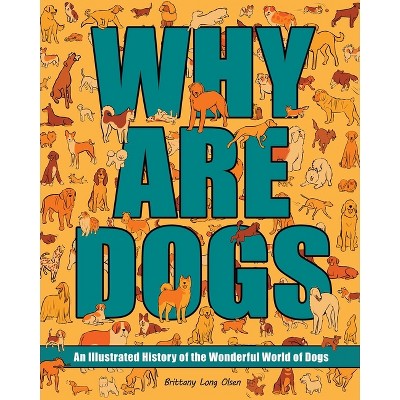
Trending Non-Fiction






